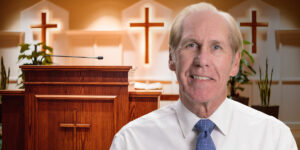
My neighbor recently told me he has started a lawn care business on the side and wondered if I’d like to hire him. Now, I haven’t always been diligent about caring for our yard, but life does get in the way sometimes—like when weekends roll around or it rains unexpectedly.
“What’s the price?” I asked him.
“Around $60,” he replied.
I was taken aback. The last time I set lawn care rates was when I was just a kid, probably about 12 or 13 years old. I used to mow three yards in the area—Mrs. Harris’s was $6, Mrs. Heron’s $4, and Mrs. Woten’s just $2.50. Times have definitely changed, especially since I remember buying gas for my mower at under 25 cents a gallon.
Changes have also occurred in other areas, like stained glass. When I was younger, tossing a dollar or even five into a collection plate felt significant. But, for many of us, those amounts aren’t quite as substantial anymore.
The shifting economy makes Paul’s guidance on giving in the New Testament quite relevant.
He had a strategy for what he termed a “love offering” intended to support his mother church in Jerusalem, particularly during times of hunger. He wanted to show that the new Gentile churches valued their partnership in spreading the Gospel.
Paul instructed the Greek church to set aside contributions each Sunday as they were blessed. As stated in the Amplified Bible, “On the first day of each week, each of you put something aside in proportion to his prosperity.” (1 Corinthians 16:2).
While originally focused on special offerings, many interpret Paul’s guidance as a timeless principle. Essentially, it encourages ongoing, proportional giving as our financial situations improve.
At the Evangelical Church I attend, we often emphasize the biblical principles regarding systematic giving. Our contributions grow alongside our earnings, and by giving at the start of the month, we honor God with our “first fruit”—the best of what we have, in line with Old Testament teachings.
These days, our gifts may not always land “on the plate.” Although the act of offering has a rich history in worship, churches have adapted to include electronic giving, especially during the COVID-19 pandemic.
With online banking options, it’s become quite simple to support God’s work consistently.
But it’s crucial to consider what and how we give. This practice encourages us away from selfishness and helps us honor God.
After all, He gives freely. -30-
“Reflections” is a weekly faith column by a pastor from a local church.







